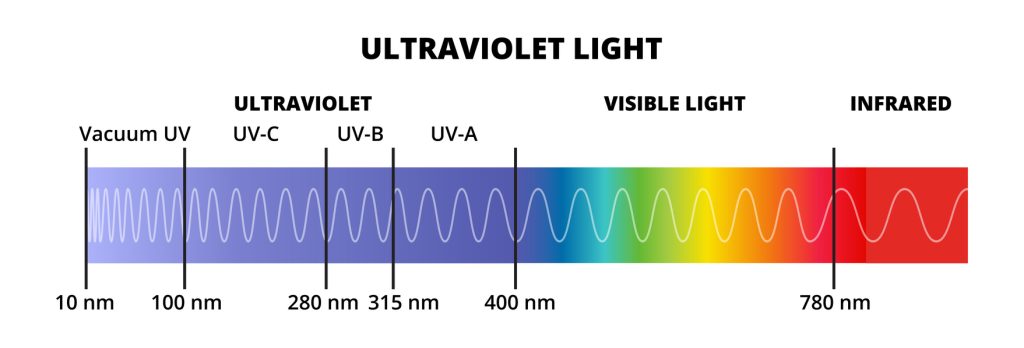The black light vs. UV light conversation is one that sometimes causes confusion among consumers who are looking for the right solution for their filtering and sanitization needs. When we think about black light, our minds often wander to the backs of limousines or dark nightclubs, with an honorable mention to just about any forensic-themed crime show on television. But what is black light, and is it the same as ultraviolet (UV) light? Whether you’re searching for a more economical solution for water sterilization or planning to dust for fingerprints, the time has come to settle the black light vs. UV light debate once and for all.
Black Light Vs. UV Light: What’s the Difference?
Both black light and UV light are known to emit a purple or violet hue, but this has more to do with our ability to perceive color based on our somewhat limited human visual spectrum. Both types of light are just slightly beyond that spectrum, and the last color we’re able to distinguish here is violet due to the red receptors in our eyes. So, what’s the difference between the two?Black Light
To put it simply, black light is a type of ultraviolet light – specifically, ultraviolet A (UVA) light, where it emits ultraviolet radiation in the UVA band. These rays are low-energy and long-wavelength and are the least harmful as far as ultraviolet radiation is concerned. You wouldn’t want to stare at a black light for too long, but it’s UVB and UVC light that represent the most harmful types known to cause sunburns and even skin cancer – not black light. In sterilization and filtering applications, black light doesn’t have the same power that UV light has, though it does make white clothing look pretty cool in the dark.Ultraviolet Light
UV light, on the other hand, is made up of both UVA and UVB light, but not UVC light. UVC light would technically be the most harmful and hazardous of all, but it doesn’t reach the Earth’s surface and is instead absorbed by the ozone layer rendering it harmless down here. UVA and UVB light seem to be the cause of the black light vs. UV light confusion, but the distinction is fairly simple. The power of both in conjunction provides the ability to sterilize surfaces, water, and even air. This is due to the combination of the two, but specifically UVB rays which have a medium wavelength and are able to cause more damage to the DNA contained in our skin.
